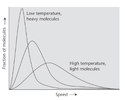RoccoR
Registered Senior Member
RE: Write4U's wobbly world of word salad woo
SUBTOPIC: What we read, what we glean, and what we learn!
⁜→ et al,
(OPENING)
The Laws of Thermodynamics, which summarize the properties of energy, were the point of origin for this discussion. This is not to be confused with the Weak Force, the Strong Four, the Electromagnetic Force, and the yet-to-be-discovered Force Carrier for Gravety (the geometry of Space-Time) which are the essentials for understanding the universe.
Having an advanced degree myself, I have to constantly remind myself that the degree is only a credential for achievement in the academic community. It has nothing to do with how intelligent I am or the level of knowledge I have captured and managed to retain.
I do not need a degree to tell me how intelligent I am. Not any layman needs such a degree. When conversing with a scientific layman you must remember to look at the intent of - and meaning behind - what they are imparting. That is to say, it is incumbent on you to express the accepted scientific terminology, but not nit-pick the layman for the mismatch of that term. You must look for the original thought. Remember that Michael Faraday (1791–1867) did not have a degree, yet was the one who kickstarted the study of electrochemistry and electromagnetism. He had what we call "original thought." Yet in his day, he was denied acceptance into the Royal Academy for decades. I marveled at the fact that Professor Albert Einstein had a photo portrait of Faraday on the wall of his study at Princeton. And we still teach the equations of the eminent Cambridge Professor James Maxwell (1831-1879) (Awarded the Fellowship of the Royal Society of Edinburgh). But "original thought' is the key:
(CONTRIBUTION)

"5. The Maxwell–Boltzmann distribution of molecular speeds for molecules of various mass and at different temperatures. Note that light molecules have higher average speeds than heavy molecules. The distribution has consequences for the composition of planetary atmospheres, as light molecules (such as hydrogen and helium) may be able to escape into space."

SUBTOPIC: What we read, what we glean, and what we learn!
⁜→ et al,
(OPENING)
The Laws of Thermodynamics, which summarize the properties of energy, were the point of origin for this discussion. This is not to be confused with the Weak Force, the Strong Four, the Electromagnetic Force, and the yet-to-be-discovered Force Carrier for Gravety (the geometry of Space-Time) which are the essentials for understanding the universe.
Having an advanced degree myself, I have to constantly remind myself that the degree is only a credential for achievement in the academic community. It has nothing to do with how intelligent I am or the level of knowledge I have captured and managed to retain.
I do not need a degree to tell me how intelligent I am. Not any layman needs such a degree. When conversing with a scientific layman you must remember to look at the intent of - and meaning behind - what they are imparting. That is to say, it is incumbent on you to express the accepted scientific terminology, but not nit-pick the layman for the mismatch of that term. You must look for the original thought. Remember that Michael Faraday (1791–1867) did not have a degree, yet was the one who kickstarted the study of electrochemistry and electromagnetism. He had what we call "original thought." Yet in his day, he was denied acceptance into the Royal Academy for decades. I marveled at the fact that Professor Albert Einstein had a photo portrait of Faraday on the wall of his study at Princeton. And we still teach the equations of the eminent Cambridge Professor James Maxwell (1831-1879) (Awarded the Fellowship of the Royal Society of Edinburgh). But "original thought' is the key:
Physicist Ernest Rutherford (1871–1937)(Nobel Laureate) stated, "When we consider the magnitude and extent of his (Faraday's) discoveries and their influence on the progress of science and of industry, there is no honor too great to pay to the memory of Faraday, one of the greatest scientific discoverers of all time.
Michael Faraday had a similar problem to the one criticized here. It is fair to disagree on a concept or principle (maybe even both), but not strike as an ad hominem. (CONTRIBUTION)

"5. The Maxwell–Boltzmann distribution of molecular speeds for molecules of various mass and at different temperatures. Note that light molecules have higher average speeds than heavy molecules. The distribution has consequences for the composition of planetary atmospheres, as light molecules (such as hydrogen and helium) may be able to escape into space."
Bibliography and References
- Professor Peter Atkins (Doctorial Advisor) (© 2007) FOUR LAWS THAT DRIVE THE UNIVERSE, First published 2007, Published in the USA by Oxford University Press Inc., New York , Chapters 1 thru 5.
- Sir Robert Penrose (Nobel Laureate) (Copyright © 2004) THE ROAD TO REALITY A Complete Guide to the Laws of the Universe, First published in Great Britain in 2004 by Jonathan Cape Random House, 20 Vauxhall Bridge Road, London SW1V 2SA
Most Respectfully,
R
.



